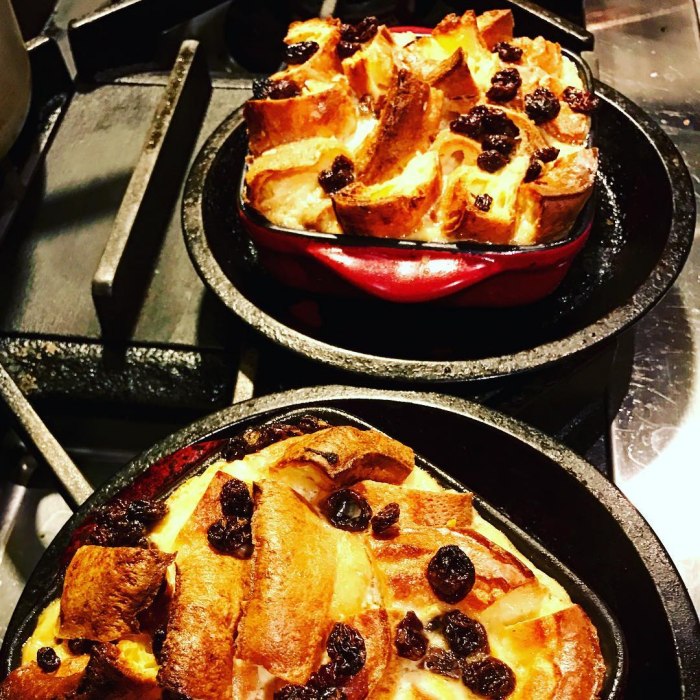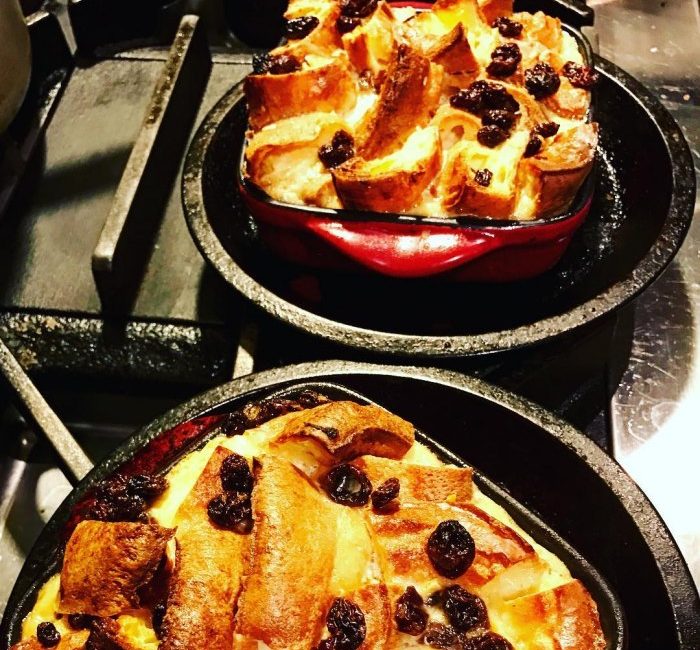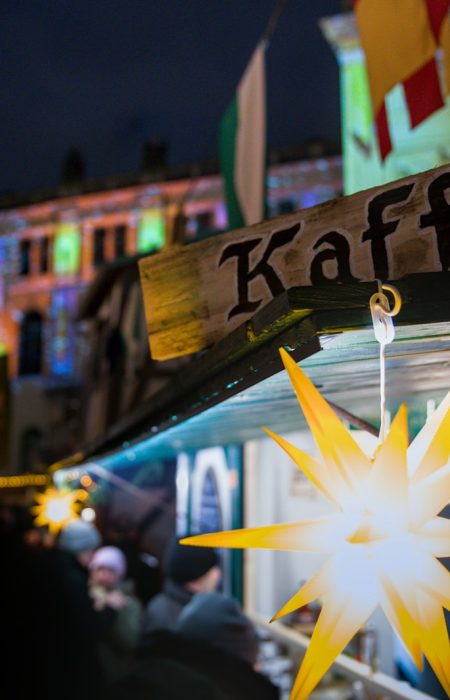In the 11th and 12th centuries, when it first appeared in England, poor cooks could only afford to soak the bread in boiling water, squeeze it dry, and then add whatever sugar and spices they happened to have on hand.

Ingredients
- 25g / 1oz butter
- 8 thin slices of bread
- 50g / 2 oz sultanas
- 2 tsp cinnamon
- 350ml / 12fl milk
- 50ml / 2 fl oz double cream
- 2 free range eggs
- 25g / 1 oz sugar
- grated, to taste nutmeg
Instructions
Grease a 1 litre / 2 pint pie dish with butter. Cut the crusts off the bread. Spread each slice on one side with butter, then cut into triangles. Arrange a layer of bread, buttered-side up, in the bottom of the dish, then add a layer of sultanas. Sprinkle with a little cinnamon, then repeat the layers of bread and sultanas, sprinkling with cinnamon, until you have used up all of the bread. Finish with a layer of bread, then set aside. Gently warm the milk and cream in a pan over a low heat to scalding point. Don't let it boil. Crack the eggs into a bowl, add three quarters of the sugar, and lightly whisk until pale. Add the warm milk and cream mixture and stir well, then strain the custard into a bowl. Pour the custard over the prepared bread layers, sprinkle with nutmeg and the remaining sugar, and leave to stand for 30 minutes. Preheat the oven to 180C/355F/Gas 4. Place the dish into the oven and bake for 30-40 minutes, or until the custard has set and the top is golden-brown.









No Comment! Be the first one.